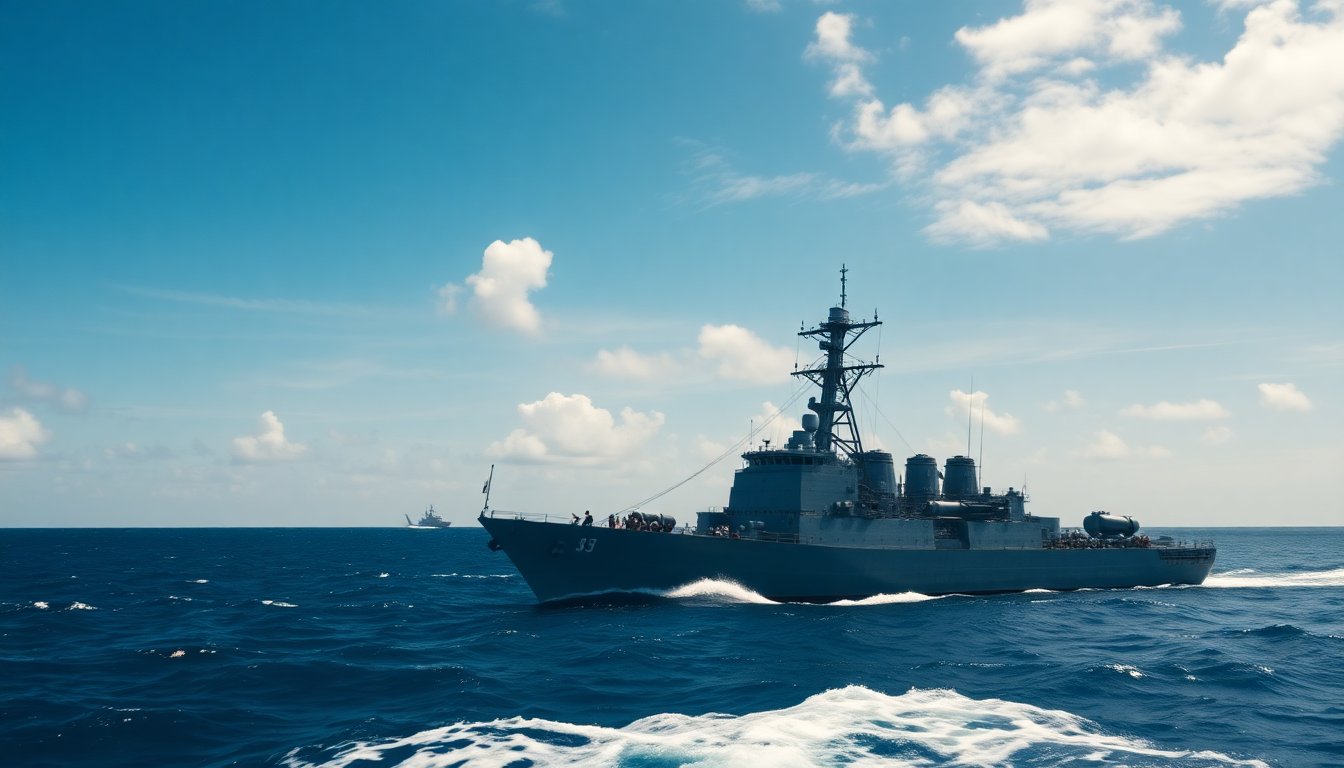Table of Contents
The recent military action by the United States marks a significant escalation in its ongoing efforts against drug trafficking. For the first time, a U.S. airstrike targeted a vessel in the Pacific Ocean, shifting the battlefield from its traditional Caribbean focus. This operation resulted in the deaths of two individuals accused of drug trafficking, raising numerous questions regarding its legal implications and ethical considerations.
Details of the strike
On a recent Wednesday, U.S. Defense Secretary Pete Hegseth confirmed the strike via social media. The operation, carried out the day before under the direct orders of President Trump, was described by Hegseth as a lethal kinetic strike aimed at a vessel linked to a Designated Terrorist Organization. The administration framed this operation as a necessary measure to protect American citizens from threats posed by illicit drugs.
Framing the enemy
Hegseth’s statement drew a parallel between drug traffickers and notorious terrorist groups, asserting, “Just as Al Qaeda waged war on our homeland, these cartels are waging war on our borders and our people.” This rhetoric is part of a broader strategy by the Trump administration to redefine drug traffickers as enemy combatants. Such framing raises concerns about the legality of targeting individuals in international waters, as international law generally prohibits extrajudicial killings outside of active combat situations.
Escalation of military actions
The airstrike on the Pacific vessel marks the eighth military engagement in a series of operations that began on September 2. The initial strike reportedly resulted in the deaths of eleven individuals labeled as “terrorists.” However, specific details regarding their identities or activities were not disclosed, leading to criticisms about the lack of transparency and due process.
Following subsequent strikes, the confirmed death toll from these operations has risen to thirty-four. These military actions, conducted without clear evidence of direct threats to the U.S., prompt discussions about the justification of lethal measures against non-state actors. The attacks have primarily targeted vessels suspected of transporting drugs linked to Venezuelan criminal organizations.
International backlash
The military actions have sparked international controversy. Following a strike that resulted in two survivors, both Ecuadorian and Colombian officials defended their nationals as innocent fishermen, arguing that there was no evidence implicating them in drug trafficking. Colombian President Gustavo Petro condemned U.S. actions as unwarranted aggression, highlighting the growing tensions surrounding these operations.
Despite international criticism, the Trump administration defends its military campaign as a vital component of national security. President Trump has characterized these operations as necessary warnings to potential traffickers, stating, “Let this serve as notice to anyone even contemplating bringing drugs into the United States.” However, the lack of comprehensive evidence to substantiate such claims continues to fuel skepticism.
Military strike raises ethical questions
The U.S. military’s recent strike in the Pacific signifies a dramatic shift in its campaign against drug trafficking. This new approach raises questions about legal ramifications and highlights the complexities of targeting non-state actors in international waters. As the Trump administration continues to frame drug traffickers as a direct threat to national security, the ethical implications of such military operations remain a contentious issue both domestically and internationally.


